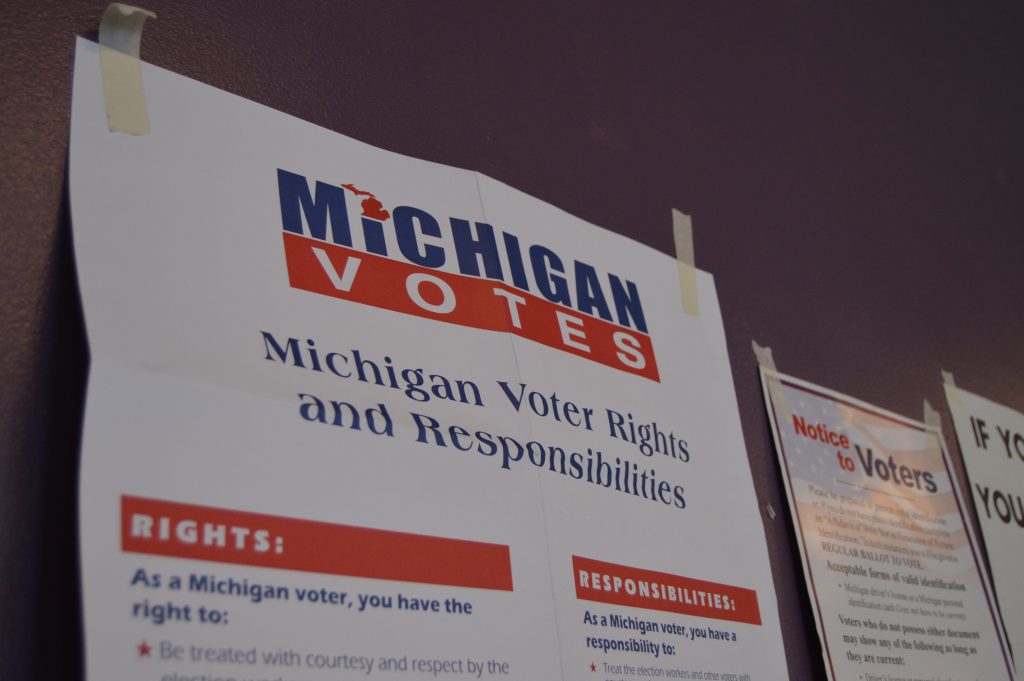From Turnout to Outcome, 2020 Election Signals Big Shifts in Michigan Since 2016
Four reporters who covered the 2016 election compare and contrast takeaways from each cycle.

Michigan has been in the national spotlight in two presidential elections in a row, and while the stories of the 2020 election are still being written, the differences between this year and the 2016 election are already surfacing — primarily when it comes to the impact of absentee voting.
As part of the weekly series MichMash, hosts Cheyna Roth and Jake Neher speak with MLive Lead Reporter Emily Lawler and MLive political reporter Lauren Gibbons about what has changed in the state between 2016 and 2020.
Subscribe to MichMash on iTunes, Spotify, Google Podcasts, NPR One or wherever you get your podcasts.
Four years ago, the United States was in the middle of what we thought was then was going to be maybe the most historic election. Roth, Neher, Lawler and Gibbons all covered the 2016 election, and there were some clear differences between then and now when it comes to voter turnout.
“Turnout is incredibly up. We had record high turnout this election,” Lawler says.
One likely reason for this, she said, is the changes to state election laws that were passed in 2018, including same-day registration and no-reason absentee voting. More people voted absentee in Michigan than in person this year.
Gibbons says the absentee ballots signaled another difference between 2016 and 2020 — how long it took to find out who had won.
Related: President Trump’s Claims About Election Fraud “Desperate,” “Obviously False”
“They do take longer to count, because you have to open the envelope, and there’s a lot more process,” Gibbons says.
A total of 5,568,097 Michigan ballots were cast in last Tuesday’s election, usurping the state’s previous record of 5,039,080 set in November 2008.
Last week’s total also is 14% higher than the 4,874,619 ballots cast in November 2016.
Whether the high rate of absentee voting sticks in future elections is something Lawler will be watching for.
“I think that the main reason we saw such a huge spike in absentee use, other than that 2018 change, was, of course, the pandemic,” she says.
“I would be surprised and also devastated if there was a pandemic going on four years from now,” says Lawler, “So I’m curious to see how many people stick with absentee versus how many people were using it because of their public health concerns this time around.”
“Same day registration was also a huge change…especially for those, young college students.” – Lauren Gibbons, MLive.
Gibbons also pointed to same-day voter registration as a potential game-changer for this election, and elections to come.
“Same-day registration was also a huge change… especially for those, young college students,” she said. “That makes it so much easier for them to vote. I’m not saying that they’re the only ones who use same-day registration, but that demographic takes good advantage of it.”
More From MichMash:
Here are the biggest cyberthreats to Michigan’s election system
How Relevant Are Newspaper Endorsements in 2020?
“Militias,” “Domestic Terrorism,” and Why The Language We Use Is Important
Cities Brace for Low Census Response Rates As Deadline Nears
Trusted, accurate, up-to-date
WDET is here to keep you informed on essential information, news and resources related to COVID-19.
This is a stressful, insecure time for many. So it’s more important than ever for you, our listeners and readers, who are able to donate to keep supporting WDET’s mission. Please make a gift today.
